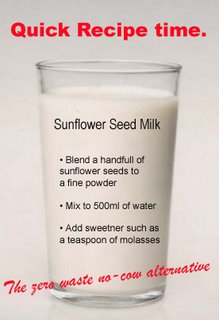Wednesday, November 01, 2006
Talking trash on my birthday
Yesterday I went out to NaeNae College and gave a talk at their assembly to the year 9 and 10 students on waste.
The school had just started a paper recycling scheme and wanted someone to come and give the students reasons why they should care.
I pointed out that it is a massive problem in New Zealand and each year on average a kiwi throws out about 310kg much of it stuff that could be recycled or in the case of green waste - valuable stuff that could be used instead of or reducing our use of petro-chemical fertilisers. Our views have changed over time and the only solution anymore isn't to just dig more holes and bury it. In 1990 we had 327 landfills now in 2006 the number has reduced to 90, however one researcher has pointed out that we have approximately 1000 illegal tips operating in NZ, many of which are on farms. Rubbish mountains create many problems:

The Bill has several major features:
The school had just started a paper recycling scheme and wanted someone to come and give the students reasons why they should care.
I pointed out that it is a massive problem in New Zealand and each year on average a kiwi throws out about 310kg much of it stuff that could be recycled or in the case of green waste - valuable stuff that could be used instead of or reducing our use of petro-chemical fertilisers. Our views have changed over time and the only solution anymore isn't to just dig more holes and bury it. In 1990 we had 327 landfills now in 2006 the number has reduced to 90, however one researcher has pointed out that we have approximately 1000 illegal tips operating in NZ, many of which are on farms. Rubbish mountains create many problems:
- Chemicals or other nasty compounds can leach into the ground polluting water (in the first year of a chemical recovery programme in 2004 over 220 tonnes were collected)
- We can't just keep on digging more giant holes - no one wants to live near a landfill
- Landfills produce methane, a greenhouse gas roughly 30 times worse than CO2 (which we could also be burning for electricity production but at the moment waste)
- and lastly, it takes a lot more energy to produce new things from scratch than recycling and reusing a product.
- Shop creatively and buy products with less packaging. Roughly 80% of a products waste is generated even before the consumer receives it. I gave the example of my old zero-waste flat as an extreme measure, demonstrating that it is possible...if you like sunflower seed milk

- Recycle at home. 80 % of New Zealand has kerbside recycling - Naenae is part of that 80%
- Compost your green waste or get a worm farm
The Bill has several major features:
- Bans on landfilling certain products (eg paper can be recycled easily and cheaply and is a valuable resource - why should we just bury it?
- Levy on waste - both to act as a economic deterrent and to fund positives alternatives
- waste Minimisation authority to oversea waste reduction strategies.
- Extended Producer responsibility - in short making the producer responsible for the whole lifetime of their product, acting as an incentive to design out as much waste as possible. Already this is being seen in some industries such as:
- Tyre track recyles old tyres. In only 18 months they collected 1.3 million old tyres.
- Fischer and Payckel will recycle their old whitewear.
- Vodafone and Telecom will accept old phones for recycling
- Dell, IBM and Hewlett Packard accept old computers


